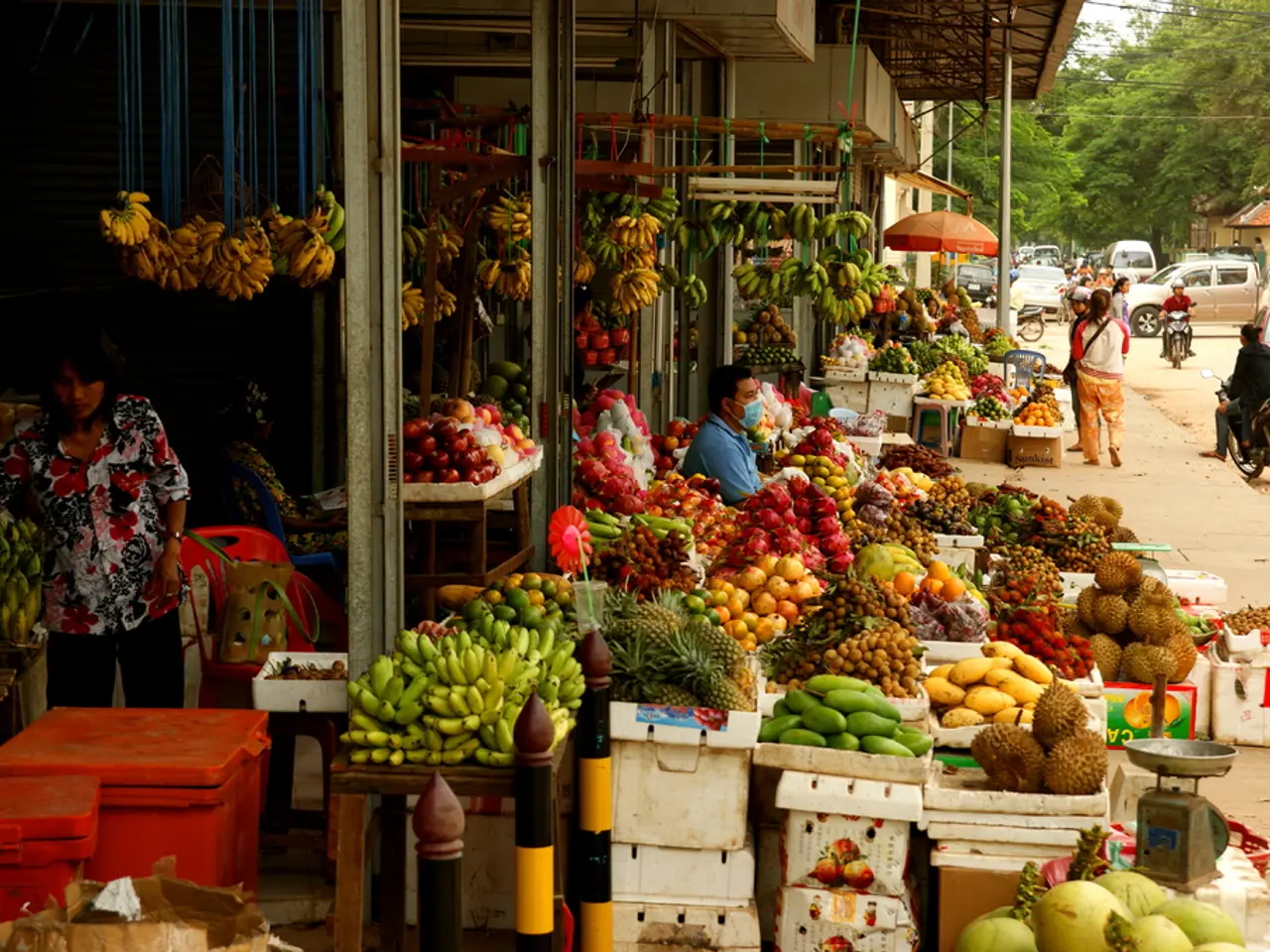Singapore boosts 2025 GDP growth projection to 1.5%-2.5%, with Q2 economic expansion recorded at 4.4%
Singapore's economy showed resilience in the first half of 2025, with a GDP growth of 4.3% compared to the previous year. However, the Ministry of Trade and Industry (MTI) has highlighted potential challenges ahead due to tariff disruptions, particularly in the transshipment of goods.
According to MTI chief economist Yong Yik Wei, potential 40% tariffs on transshipped goods could significantly impact wholesale trade and the transport and storage sector, including port activity and air cargo. These tariffs, though lower compared to regional neighbours, pose a threat to Singapore's export-driven economy.
The tariffs, part of recent US tariff policies, have a base rate of 10% on transshipped goods. Despite Singapore running a trade deficit with the US and having a bilateral free trade agreement, it is still subject to these tariffs. Prime Minister Lawrence Wong described the introduction of such tariffs as a "fundamental rupture" in the global trade system, signalling long-term structural shifts that Singapore must prepare for.
Critical sectors like electronics, semiconductors, logistics, and biomedical services—which constitute a large part of Singapore’s GDP—are particularly affected. In response, the government established a High-Level Economic Resilience Task Force to monitor the evolving tariff situation, support affected businesses and workers, and assess impacts on export-oriented industries and related sectors.
The tariffs also lead to increased complexity in supply chains, as Singapore is a major transshipment hub. This results in challenges like verifying the country of origin of goods due to integrated regional supply chains, making enforcement of punitive tariffs difficult. There is also pressure to enhance origin verification processes to prevent rerouting of Chinese goods through Singapore to avoid tariffs.
Despite these challenges, the MTI upgraded Singapore's GDP growth forecast for 2025 from 0% to 2% to 2.5%. The fuels and chemicals segment in Singapore's wholesale trade sector grew due to an increase in the wholesale sales of petroleum and petroleum products. However, as frontloading activities taper and reciprocal tariffs take effect, these could weigh on global economic activity and trade.
The manufacturing sector in Singapore grew 5.2% in the second quarter, but shrank 0.4% on a quarter-on-quarter seasonally adjusted basis. Singapore's non-oil domestic exports (NODX) grew 7.1% in the second quarter, with electronics exports growing 10.5%. Non-electronic products exports grew 6%.
However, slower growth in outward-oriented sectors such as manufacturing and wholesale trade is expected in the second half of the year due to US tariffs. The food and beverage services sector shrank in the second quarter due to a sustained increase in outbound travel by locals.
The MTI has also highlighted three risks in the global economy: re-escalation of tariffs, a sharper-than-expected tightening of global financial conditions, and potential geopolitical tensions leading to disruptions in energy commodities. The growth forecast takes into account the good performance of the first six months of the year as well as the projected softening of global and domestic economies in the second half of 2025.
Southeast Asian economies are also expected to be affected by the US tariffs. The tariff truce between the US and China has been extended by 90 days, providing some relief but also maintaining uncertainty in the global trade landscape. The MTI will continue to monitor the situation closely and take necessary measures to support the economy.
Read also:
- New guidelines for NEPA processes unveiled by federal agencies, in alignment with Executive Order 14154 and the Seven County Decision of the Supreme Court
- Struggling Estonians can't afford basic necessities like food, according to the head of Prisma Peremarket chain of stores.
- Rise in second-quarter revenue by 36% for Legend Biotech reported
- Nuclear power plant in Gravelines, France, temporally halted due to jellyfish blocking its cooling system.




